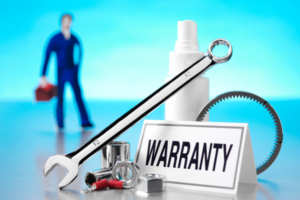
Secondhand blues: Understanding car warranties
Before you pay for a used car, it’s important you take steps to protect yourself from avoidable issues.
This includes determining whether the car is worth the money, compared with a new model and cars of a similar age and make, and working out how much it will cost to run and insure (see our guide to how car insurance works).
You should also make it a priority to find you what warranty, if any, is left on the car. While you have protections under Australian Consumer Law, not all warranties are equal and some amount to little more than junk insurance.
Not all warranties are transferable
When purchasing a used car, any remaining manufacturer's warranty typically transfers to the new owner - unless the warranty explicitly states otherwise.

However, extended or statutory warranties generally do not transfer when a vehicle is sold. These warranties are typically limited to the original purchaser. This means that if something goes wrong with the car, you'll have to pay for the repairs yourself.
Some secondhand cars may come with a voluntary warranty from the seller. Ask about the warranty before making a purchase. If there is no warranty offered, you may want to consider getting an extended warranty (if it’s from an authorised dealer) or insurance policy (if buying from a private seller) to cover any potential repairs.
Is an extended warranty worth it?
An extended warranty covers the cost of repairs for a longer period of time than the manufacturer's warranty. The cost can vary between hundreds and thousands of dollars, depending on the type of car and length of the warranty, but it can be a good investment if you're worried about expensive repairs.
However, not all extended warranties are worth the money. Some secondhand car dealers will try to sell you an overpriced extended warranty that doesn't offer any more cover than you are entitled to under Australian Consumer Law. Some extended warranties only cover specific parts of the car, while others cover the entire vehicle. Read the terms and conditions of the warranty before signing up.
If you're not sure whether an extended warranty is worth it, ask a trusted car mechanic, or your local motoring association, for advice. If you are having a pre-inspection to help avoid buying a lemon, it’s a good time to ask their opinion as they will be able to give you the lowdown on the kind of repairs you might be up for in the future.
Statutory warranties can help (but not for long)
In Australia, the mandatory warranties — called statutory warranties — on used cars vary depending on where you live.

Victoria, NSW, NT and ACT
In Victoria, NSW, NT and ACT, all secondhand cars from car dealers and auctioneers must come with a three-month or 5000km warranty, whichever comes first. This is required for all cars less than 10 years old and with fewer than 160,000km on the odometer.
Queensland
In Queensland, there are Class A and Class B warranties. Class A is the same as the statutory warranty above; Class B is for used cars more than 10 years old that have run for more than 160,000km. In that case, the warranty expires after one month or the first 1000km, whichever comes first.
Western Australia
In Western Australia, the policy differs for cars that have clocked up less than 150,000km and ones with 150,000 to 180,000km on the odometer. It's three months or 5000 km and one month or 1500km, respectively.
South Australia
In South Australia, the vehicle is covered by the warranty if it's less than 15 years old and has less than 200,000km on the odometer. The duration of the warranty depends on how much you bought the car for.
Tasmania
In Tasmania, the statutory warranty applies to used cars less than seven years old that have travelled less than 120,000km. The warranty expires after three months or after 3000km, whichever happens sooner.
Remember, not everything is covered by warranty. Tyres and batteries, perishable items such as brake pads and wiper blades, accessories fitted after manufacture such as stereo systems, damage caused by accidents, misuse or negligence after delivery, damage to paintwork or upholstery after delivery, tune-ups or services and tools all fall outside the statutory warranty.
It's important to check the regulations in your state, as well as your entitlement under Australian Consumer Law, before buying a secondhand car. If your dealer isn‘t delivering on their obligations under your car warranty, lodge your complaint with us and we’ll help you handle it.






